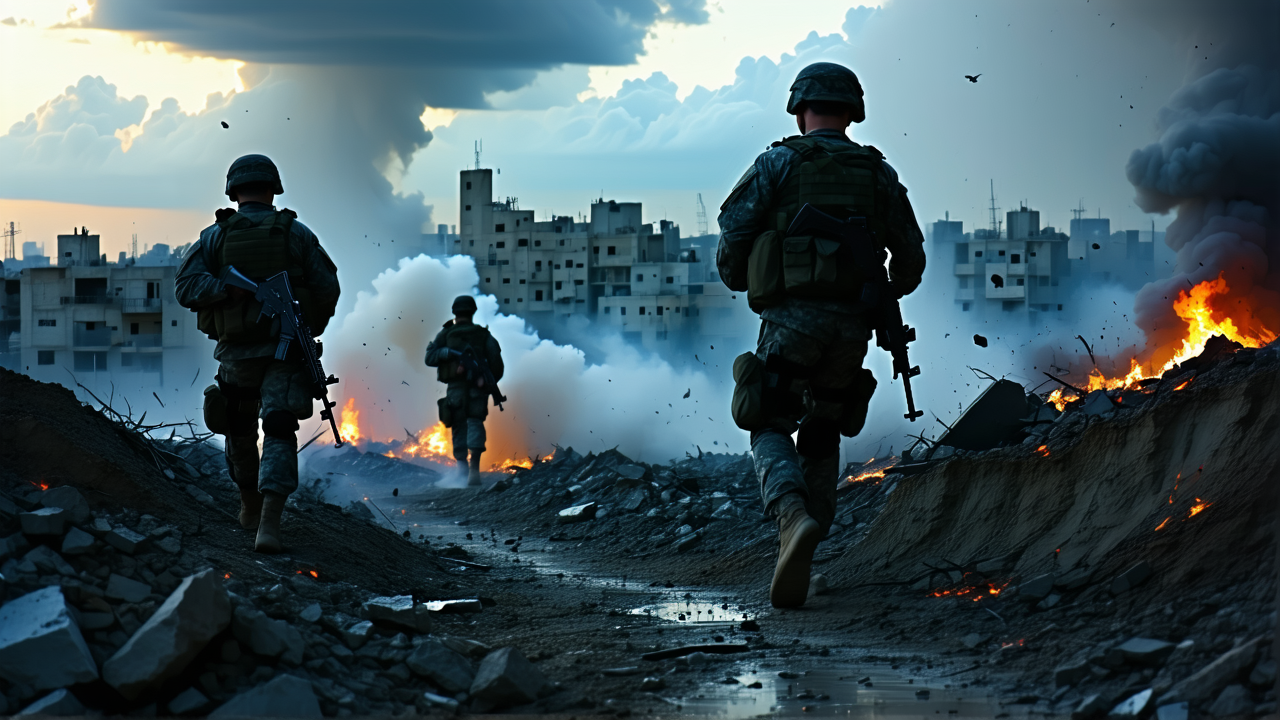Israel Faces Backlash Over Gaza War Escalation Plan
Israel Faces Backlash Over Gaza War Escalation Plan
Israeli Prime Minister Benjamin Netanyahu has come under intense criticism from both within Israel and abroad following the approval of a plan to take control of Gaza City. This move marks a significant escalation in the ongoing conflict, which has already lasted nearly two years and drawn global condemnation over its humanitarian toll.
The decision to expand military operations into the heart of Gaza has sparked outrage from European allies, with Germany announcing a halt to military exports to Israel that could be used in Gaza. Prime Minister Netanyahu has called this decision 'disappointing,' but the move has only intensified pressure on the Israeli government.
Britain and other European nations have urged Israel to reconsider its approach, while U.S. Ambassador to Israel, Mike Huckabee, has argued that some countries are focusing too much on Israel and not enough on Hamas, the militant group responsible for the 2023 attack that ignited the war. Meanwhile, within Israel, families of hostages held in Gaza and opposition leaders have condemned Netanyahu for what they see as a reckless decision that puts lives at risk.
Opposition leader Yair Lapid has called the plan to send Israeli forces into Gaza City a 'disaster,' accusing far-right ministers in Netanyahu's coalition of pushing the prime minister into a prolonged and dangerous campaign. The military has warned that such a move could endanger the lives of remaining hostages in Gaza.
Netanyahu, however, has remained resolute, stating in an interview that Israel's goal is to 'free Gaza from Hamas' and establish a peaceful government there. He has also emphasized that Israel does not intend to take over the territory, though his remarks have not quelled concerns about the potential for a full-scale occupation.
Gaza City is widely regarded as the 'heart' of the Palestinian territory, with significant political and military significance. If captured, it would give Israel control over approximately 85 percent of the Gaza Strip, according to a retired Israeli brigadier general. This could mark a turning point in the war, but it also raises serious humanitarian and security concerns.
With over 900,000 people currently living in Gaza City, many of whom have been displaced by the conflict, the situation is dire. Displaced Palestinian resident Maghzouza Saada asked, 'Where should we go? Do we throw ourselves in the sea?' as she described the desperate conditions faced by her community.
Internationally, European Commission President Ursula von der Leyen and regional power Saudi Arabia have both expressed strong opposition to the plan. Meanwhile, the U.S. ambassador has reiterated President Trump's frustration with Hamas' refusal to disarm, arguing that the militant group must be removed from power.
Domestically, opinion polls have shown that a majority of Israelis believe the war should end immediately in a diplomatic agreement that would secure the release of remaining hostages. The Hostages Families Forum has criticized the government for putting the lives of hostages and soldiers at risk, calling the decision a 'death sentence' for those still being held in Gaza.
As the conflict continues to deepen, the world watches closely, with growing calls for a ceasefire and a resolution that prioritizes the lives of civilians and the restoration of peace in the region.
